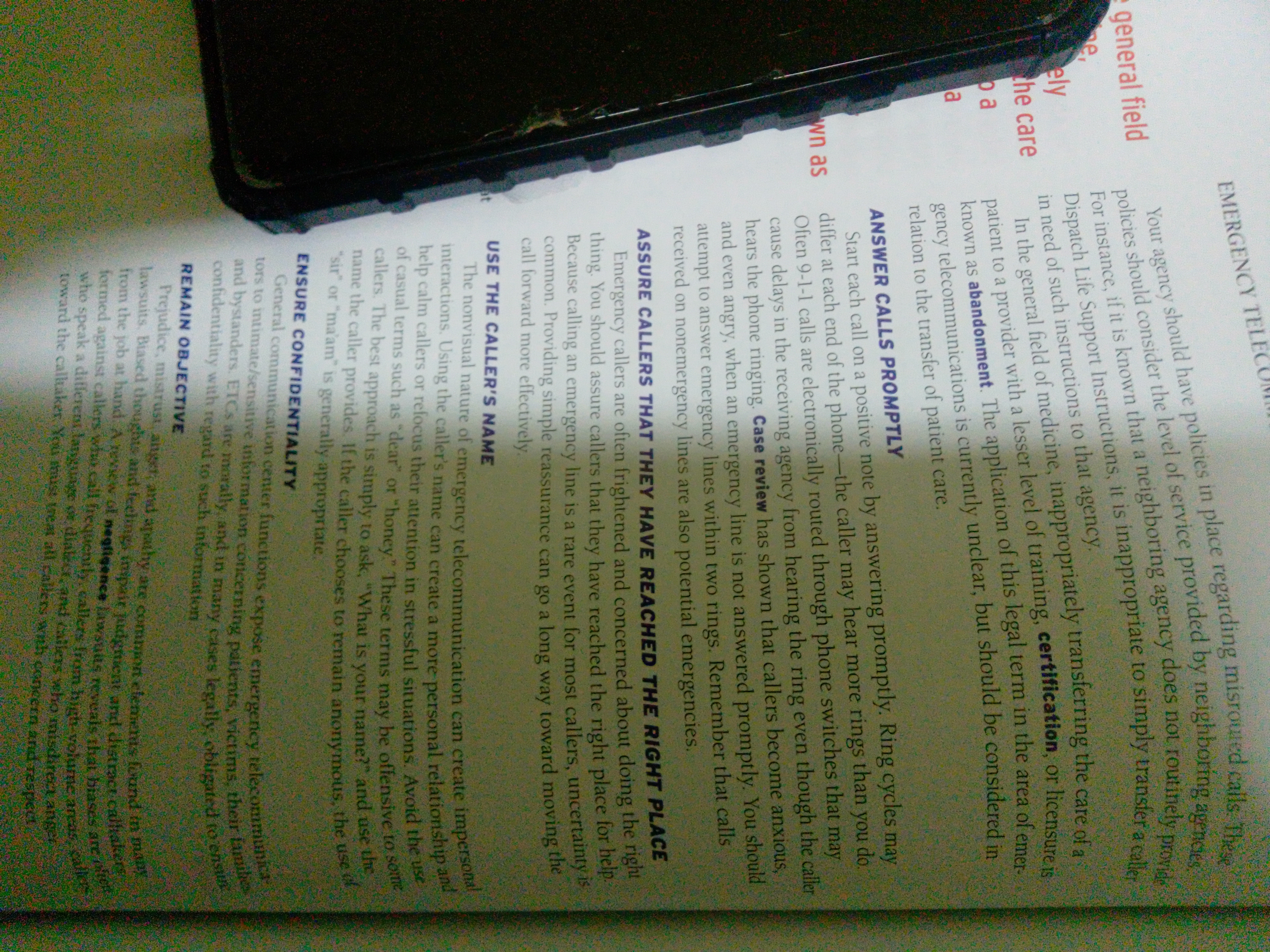What are the best practices for answering emergency calls in telecommunications?

Understand the Problem
The question is likely asking about guidelines or best practices for answering emergency calls in a telecommunication context. It focuses on the importance of using the caller's name, ensuring confidentiality, and promptly answering calls.
Answer
Remain objective, ensure confidentiality, use the caller's name, assure callers they have reached the right place, answer calls promptly.
From the visible text in the image, some best practices for answering emergency calls include remaining objective, ensuring confidentiality, using the caller's name, assuring callers that they have reached the right place, and answering calls promptly.
Answer for screen readers
From the visible text in the image, some best practices for answering emergency calls include remaining objective, ensuring confidentiality, using the caller's name, assuring callers that they have reached the right place, and answering calls promptly.
More Information
These points aim to create a calm and efficient environment for handling emergency calls, thus providing effective assistance to callers.
Tips
A common mistake is not actively listening to the caller, which can result in missing critical information. Always stay calm and focused.
Sources
- Best Practices for Handling Emergency Calls | Always Answer - callcenteragency.com
- 9-1-1 Tips for Callers | Highland Park, TX - Official Website - hptx.org
- 6 key strategies to ensure 911 compliance | TechTarget - techtarget.com
AI-generated content may contain errors. Please verify critical information